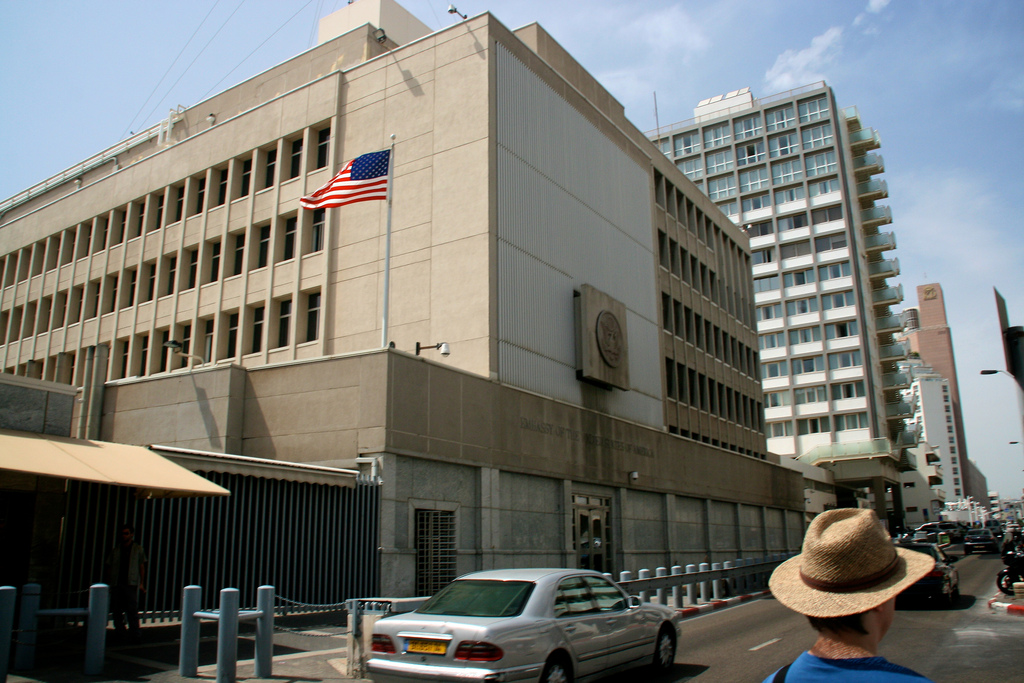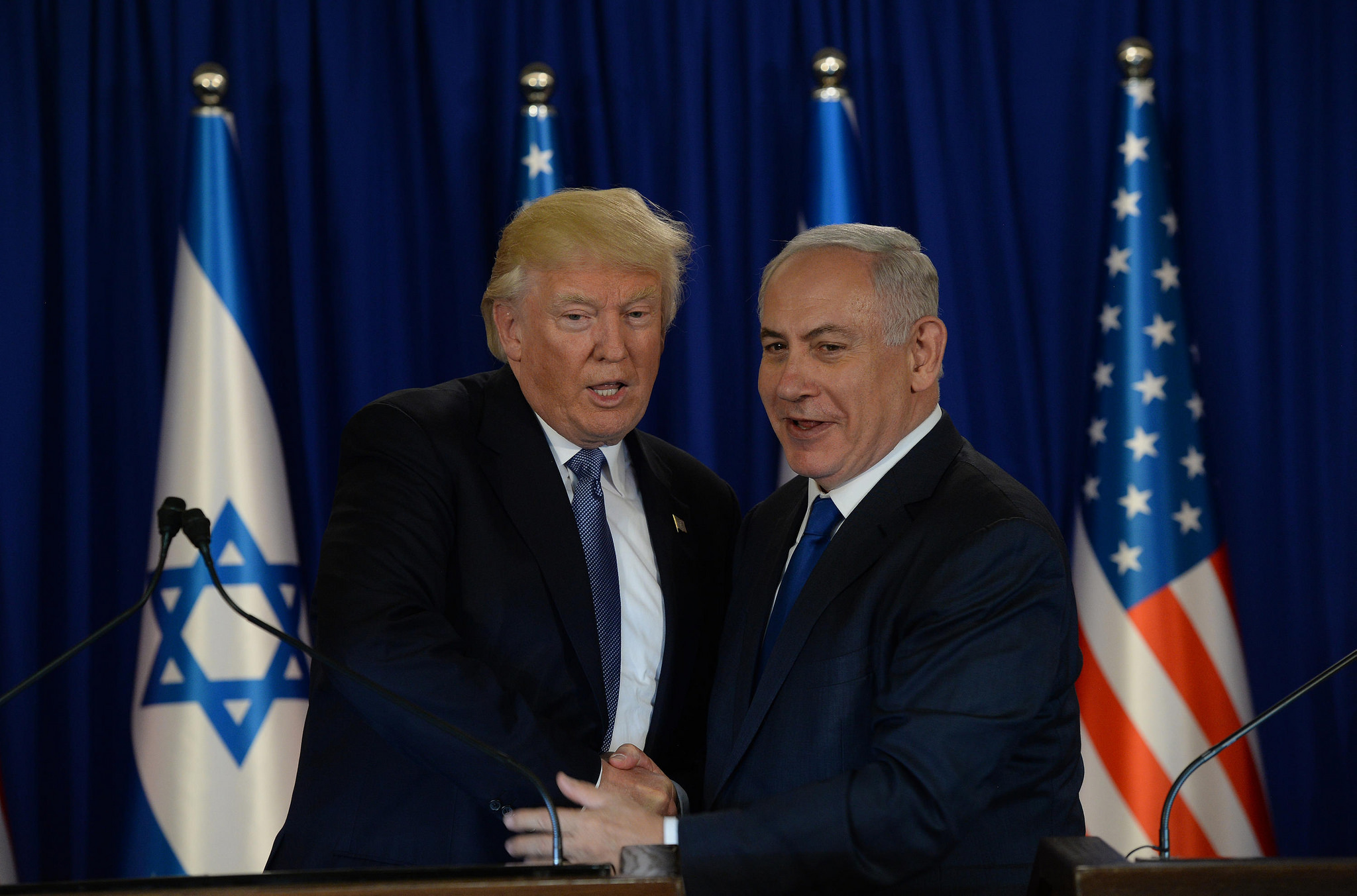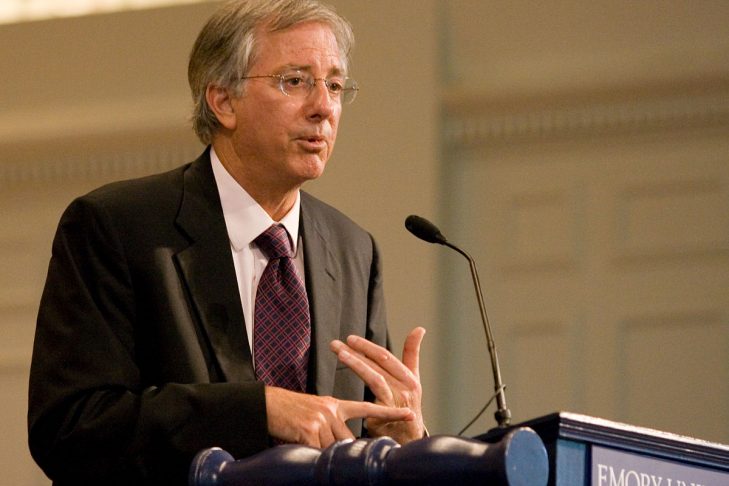Ambassador Dennis Ross recorded a podcast with israel360, giving his unique insights into the relationship he has called “doomed to succeed.” How have U.S.-Israel relations changed under Trump? Or is it really all that different? Excerpts of our conversation are below. Read/listen to the full conversation here.
israel360: Among American Jews, recent polling indicates Trump’s approval rating among American Jews is at 21 percent, with 77 percent disapproving. Then when we look at Israel, his popularity at least before the trip to Israel he took earlier this year, that number was completely flipped. Fifty-four percent saw him as well qualified, 69 percent as a strong leader, 65 percent expected U.S.-Israel relations to get better. Is this divide unprecedented?
Dennis Ross: If you think back in time, it’s hard to identify something like this. There have been periods where you’ve had less approval of an American president in the Jewish community, for example, George H. W. Bush, he ended up getting 10 percent or 11 percent of the Jewish vote. That’s significantly less than what you see at least in terms of the approval/disapproval rating right now. But the perception of George H. W. Bush in Israel was also pretty negative; what you have here is a kind of disparity between what is real disapproval for the president among the vast majority of the Jewish community, but what is basically pretty solid approval among Israelis. And I think the explanation is, the view of President Obama in Israel was very negative, across the board.
israel360: Are you saying the Israeli public has embraced Trump for being the “anti-Obama”?
Dennis Ross: Yes, I think among the Israeli public. But not among all of the Israeli elite. The Israeli security establishment had a very different view of Obama. Obama’s approach on the qualitative military edge was actually quite good, but his approach on settlements showed no differentiation between the blocks and the non-blocks. That was a mistake on the part of Obama, and also the support for, or at least the abstention, of the security council resolution that was adopted in December of 2016 was seen as very one-sided. So, it cemented the view among the Israeli public that Obama was someone who really didn’t get the context in which Israel has to live. So I do think that Trump gains with the Israeli public because he’s not Obama.
israel360: If we are to believe the statements from the Middle East, there would seem to be the strong possibility of a new round of conflict with the Palestinians if Trump follows up on one of his campaign promises to move the embassy to Jerusalem.

Dennis Ross: [Trump] signed the waiver delaying the move in June, so he probably will again because his team is working on a peace plan. There’s an irony here because this is an issue that actually could be explained, but it takes a lot of preparation to do it. The site for the embassy is in West Jerusalem. It’s within the ’67 boundaries. The only ones who don’t recognize that that will always be a part of Israel are those who don’t recognize Israel and don’t want it to exist at all. By the way, the U.S. has two political offices in Jerusalem that serve only the Palestinians. Why is it OK to have political offices in Jerusalem that serves the Palestinians but not the Israelis? You have to prepare the ground, repeat over and over and over again, “This is only dealing with a fact, that no one questions whether West Jerusalem will remain part of Israel, that this is not designed to preempt negotiations on the final status,” and in fact it does not, and say it over and over again, say it publicly with the Arabs, get Arab leaders to say it. You need to create a mantra about this so you can’t allow those who would like to distort it the easy ability to do so. But having said what I just said means a lot of preparation. So I don’t see particularly given the likely presentation of ideas or a plan, either at the end of the year or early next year, I think it’s unlikely that you’ll see a move in that time frame.
israel360: Netanyahu and Trump seem to be getting along famously so far. Are they starting to encounter some of the usual stresses that every U.S. president has had with every Israeli leader and vice versa?

Dennis Ross: One thing that the Trump administration has done is to be very careful about not creating any public dissonance with Israel and Netanyahu has been the same in return. If the administration does come out with a set of ideas or a plan on the Israeli-Palestinian issue, there’s gonna be things in it that the Israelis won’t like, there’s gonna be things in it the Palestinians won’t like. In terms of your question with regard to, “Are we gonna see some signs of some tension and strains?” The time to see whether something is going to merge is at that point.
israel360: As followers of news in both Israel and the U.S., it’s not entirely out of the question that Trump, Netanyahu or both don’t finish their term as, let’s say “scheduled.” What impact would scandal in one country or the other have on the U.S.-Israel relationship?
Dennis Ross: Well, what’s interesting about the U.S.-Israel relationship, and it’s one of the things I try to show in my book, was that personalities were important but fundamentally the relationship continued to evolve in a positive direction. In a lot of ways the personalities affect the relationship but not its fundamental foundation. And at a time when whatever Israel’s difficulties, it will remain a democracy in a region where we were describing all the conflicts. So as long as the region is gonna be characterized by profound turmoil, our interest in Israel actually will become, I think, even greater, not lesser. And regardless of what happens to whoever is in power, that reality I think in the end, trumps all the others.
israel360: I think it’s only fitting to end on that pun. Thank you, Ambassador Ross!



